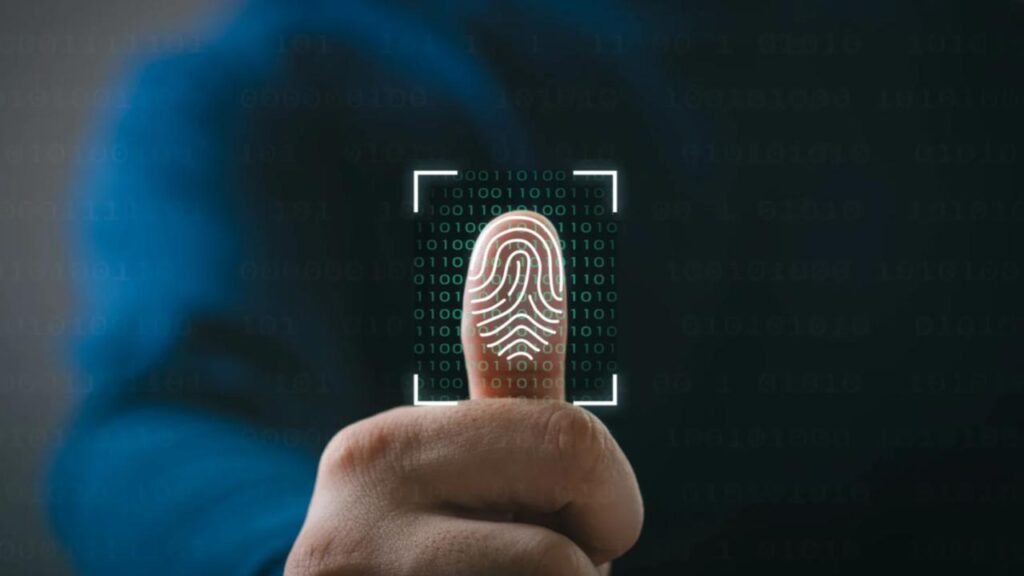UPSC Plans Biometric Authentication Starting June: The Union Public Service Commission (UPSC) is shaking things up starting June 2025. In a game-changing move, they’re rolling out Aadhaar-based biometric authentication and AI-powered surveillance for their exams. That’s right—no more slipping past the system with fake IDs or stand-in candidates. The goal? Making cheating in UPSC exams next to impossible.

This new tech upgrade comes after some jaw-dropping controversies, like the infamous Puja Khedkar case, where an IAS trainee allegedly faked her identity multiple times to retake the exam—way past the legal limit. Now, UPSC is done playing defense. They’re going full throttle on digital.
UPSC Plans Biometric Authentication Starting June
| Feature | Details |
|---|---|
| Implementation Start Date | June 2025 (not applicable for May 25 CSE Prelims) |
| New Features | Aadhaar biometric authentication, facial recognition, AI-based CCTV, GPS attendance |
| Purpose | Stop impersonation, reduce malpractice, tighten exam integrity |
| Privacy Concerns | Needs robust data protection and infrastructure |
The UPSC’s biometric and AI surveillance overhaul is a bold new era for Indian competitive exams. For decades, aspirants have dreamed of a level playing field. This could be it.
Sure, it’s not perfect. But it sends a message: “Earn your seat the right way.” For hardworking students across the country, that’s a big win.
Why UPSC Is Bringing the Heat with Biometric Tech
Let’s keep it real—UPSC exams are the Mount Everest of Indian competitive tests. With lakhs of aspirants eyeing just a few hundred posts, the pressure’s off the charts. And where there’s pressure, there’s always someone looking for shortcuts.
By introducing biometric systems and facial recognition, UPSC is saying: “You cheat, you’re beat.” The move will help:
- Verify true identity of candidates
- Track attendance in real time
- Monitor suspicious movements using smart AI surveillance
- Compare live photos to registration documents
No more sneaking in a smarter friend to take your paper. If your fingerprint and face don’t match the registration data, you’re out.
What’s Changing: A Breakdown of the New Measures
Aadhaar-Based Biometric Authentication
At the exam center, candidates will have their fingerprints scanned and matched against Aadhaar records. It’s simple and fast. No ID card? No entry.
Facial Recognition Tech
A smart camera will snap your photo right at the gate. The system then checks it against the pic you uploaded during registration. If there’s a mismatch, the invigilators get an alert.
QR Code-Based E-Admit Cards
UPSC admit cards will now come with QR codes. Invigilators scan them on the spot to double-check your name, ID, and registration number.
AI-Powered CCTV Surveillance
Goodbye grainy old cameras. UPSC will deploy AI-enabled CCTV systems that:
- Detect odd or suspicious behavior (like a candidate looking around too much)
- Monitor whether invigilators are actually doing their jobs
Real-Time Attendance with GPS Tracking
Each candidate’s presence will be marked on a secure server, complete with timestamp and location data. So if you’re supposed to be in Delhi, you can’t magically be present in Mumbai.
Is This Foolproof? The Limits of Tech
Now, hold up. Let’s not pretend like this is a silver bullet.
- Data Privacy: We’re talkin’ fingerprints and faces. This stuff has to be locked down tight. UPSC needs bulletproof cybersecurity.
- Infrastructure Gaps: Not every test center is a tech paradise. What if a scanner breaks mid-exam?
- False Positives: Facial recognition isn’t always 100%. Lighting, angles, or even glasses can throw it off.
So yeah, while this is a huge leap forward, it ain’t magic. Constant updates, field testing, and public feedback will be key.
Context: What Triggered This Move?
Cases like Puja Khedkar’s opened a lot of eyes. She reportedly used forged disability certificates and changed her name multiple times to retake the civil services exam. And she’s not the only one.
These new tech safeguards are UPSC’s answer to increasing scrutiny, high-profile scams, and the rising demand for transparency and fairness.
How This Affects Aspirants
So, what does this mean if you’re prepping for the UPSC?
- No second chances at cheating: If you’ve got shady plans, abandon ship now.
- Be on time: The GPS timestamp tracks everything.
- Keep documents clean: Your Aadhaar and registration details must match perfectly.
- Practice facial recognition: Upload a recent, clear photo. No filters. No tricks.
For the honest majority? This is good news. Less chance of unfair competition. You win on merit.
Expert Take: Is This the Future?
Digital security pros say this move puts UPSC at the front of the line in terms of exam integrity. But experts also warn that implementation quality will make or break it.
“Biometric and AI tools are only as good as the systems behind them. You need skilled staff, reliable servers, and fast issue resolution,” said cybersecurity analyst Radhika Sharma in an interview with India Today.
Plus, expect other competitive bodies—like SSC, NEET, and JEE—to follow UPSC’s lead if this rollout goes smooth.
FAQs about UPSC Plans Biometric Authentication Starting June
Q1: Will these rules apply to the 2025 UPSC Prelims in May?
Nope. The new system kicks in June 2025. The May 25 exam will run as usual.
Q2: What happens if my Aadhaar details don’t match?
You could be barred from entering the exam hall. Make sure your Aadhaar is updated and matches your UPSC application.
Q3: Is facial recognition mandatory?
Yes, it’s part of the new multi-layered ID verification. Make sure your registration photo is clear.
Q4: Will this completely stop cheating?
Not 100%, but it will make impersonation extremely difficult. No tech is foolproof, but this is a big step.
Q5: Is my data safe with UPSC?
UPSC says all biometric data will be handled with strict privacy protocols. But critics are calling for independent audits and data protection laws.